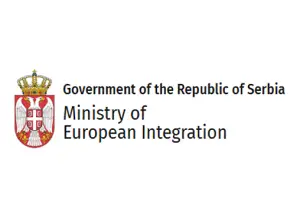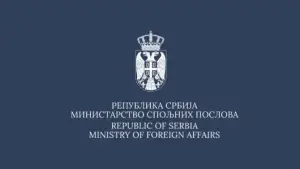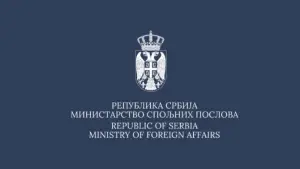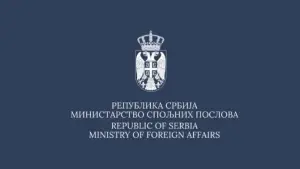- Serbia
Get to know Serbia
- Citizens
Culture and science
Health services
Pension and disability insurance
- Business
Employment
Economy
- Media
- Government
- Contact
Keep in touch
Contact form
Back
Keepin touch
Whether you have a question, comment, suggestion or any problem in the purview of the government, send us your message and we will try to respond as soon as possible. If your problem is not in our purview, we will forward your message to the relevant institution.
Q:
A:
Proposal on abolition of state monopoly on city building land
Belgrade,
28 November 2005
Serbian Minister of International Economic Relations Milan Parivodic, who also heads the commission for realisation of the action plan for removing administrative obstacles to foreign investment, filed a proposal with the Serbia-Montenegrin Court to abolish the state monopoly on city building land.
Parivodic filed a proposal on annulment of the part of Article 60 of the Serbian Constitution which envisages a state monopoly on city building land, as well as an annulment of provisions derived from Serbian laws and bylaws, because they are not in line with the Constitutional Charter of the state union of Serbia-Montenegro.
The Serbian Ministry of International Economic Relations recalled that the Serbian government stated in its action plan for removing administrative obstacles to foreign investment that the impossibility of acquiring ownership over city building land is one of the key impediments to overall economic growth and creation of new jobs in Serbia, and that it must be removed as soon as possible.
Such a monopoly by the state represents a legal anachronism among modern market economies and an impediment in the EU integration process, reads the ministry’s statement.
The Constitutional Charter envisages economic relations within the state union based on “the market economy founded on free entrepreneurship” and one that guarantees property rights.
To guarantee property rights in a market economy founded on free entrepreneurship means to offer the possibility of acquiring property rights over all major economic resources of a country, which undoubtedly includes city building land. A user of property must, as a rule, be its owner, because that is the essence and purpose of the property right as one of the basic human rights. Proof of that lies in the fact that no other developed market economy (that of the EU member states, the USA or Japan) holds a state monopoly over city building land.
Instead of giving a property right over city building land to a user, the state monopoly envisages the right of usage, which leads to systematic violation of law and constant legal complications, protraction and corruption.
The ultimate consequences of this unnatural legal state of affairs include serious erosions of legal security in the area of land and construction law, and in a legal state’s respectability in the eyes of its citizens and economy, as well as obstruction of privatisation and restitution of city building land, which hinders the normal way of doing business in Serbia, reads the ministry’s statement.
The Serbian Ministry of International Economic Relations recalled that the Serbian government stated in its action plan for removing administrative obstacles to foreign investment that the impossibility of acquiring ownership over city building land is one of the key impediments to overall economic growth and creation of new jobs in Serbia, and that it must be removed as soon as possible.
Such a monopoly by the state represents a legal anachronism among modern market economies and an impediment in the EU integration process, reads the ministry’s statement.
The Constitutional Charter envisages economic relations within the state union based on “the market economy founded on free entrepreneurship” and one that guarantees property rights.
To guarantee property rights in a market economy founded on free entrepreneurship means to offer the possibility of acquiring property rights over all major economic resources of a country, which undoubtedly includes city building land. A user of property must, as a rule, be its owner, because that is the essence and purpose of the property right as one of the basic human rights. Proof of that lies in the fact that no other developed market economy (that of the EU member states, the USA or Japan) holds a state monopoly over city building land.
Instead of giving a property right over city building land to a user, the state monopoly envisages the right of usage, which leads to systematic violation of law and constant legal complications, protraction and corruption.
The ultimate consequences of this unnatural legal state of affairs include serious erosions of legal security in the area of land and construction law, and in a legal state’s respectability in the eyes of its citizens and economy, as well as obstruction of privatisation and restitution of city building land, which hinders the normal way of doing business in Serbia, reads the ministry’s statement.
-
 Belgrade, 16 January 2026
Belgrade, 16 January 2026Government remains committed to further implementation of Reform Agenda
-
 Belgrade, 15 January 2026
Belgrade, 15 January 2026Serbian citizens urged to leave Iran
-
 Belgrade, 12 January 2026
Belgrade, 12 January 2026Services in protection system ordered to take all operational, preventive measures
-
 Belgrade, 12 January 2026
Belgrade, 12 January 2026Gender equality important precondition for overall social development
-
 Belgrade, 5 January 2026
Belgrade, 5 January 2026State support for family of Serbian national who lost his life in Crans-Montana
-
 Belgrade, 5 January 2026
Belgrade, 5 January 2026Serbian military hospital disengaged from UN peacekeeping operation in Central African Republic
-
 Belgrade, 1 January 2026
Belgrade, 1 January 2026Four oil derivative storage tanks put into trial operation
-
 Belgrade, 31 December 2025
Belgrade, 31 December 2025Continuing work on strengthening Serbia’s international position
-
 Belgrade, 27 December 2025
Belgrade, 27 December 2025Consistent respect for territorial integrity, sovereignty of all UN member states required
-
 Belgrade, 25 December 2025
Belgrade, 25 December 2025Inaccurate claims about North Macedonia’s ban on imports of kiwis from Serbia
